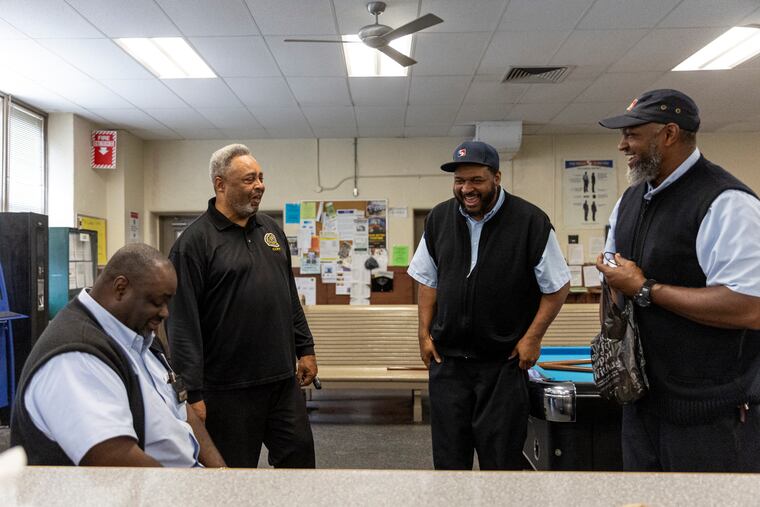Transport Workers vote to authorize a strike against SEPTA
SEPTA says it faces a looming budget deficit as it negotiates with three employee unions.

» READ MORE: https://www.inquirer.com/transportation/septa-avoids-bus-trolley-worker-strike-20231027.html
Members of Transport Workers Union Local 234, SEPTA’s largest, voted Sunday to authorize its leadership to call a strike against the transit agency as bargaining enters a crucial phase 30 days before the local’s current contract expires.
About 1,000 workers met briefly at the Sheet Metal Workers hall in South Philadelphia for the vote, which union officials said was unanimous. The 4,500-member Local 234 represents bus, trolley, and transit-train operators, mechanics, and other SEPTA personnel.
“This doesn’t necessarily mean there will be a strike called,” union president Brian Pollitt said in a statement. “The TWU bargaining team will continue to bargain in good faith. Our hope is management also will bargain fairly. However, the clock is ticking.”
» READ MORE: SEPTA must negotiate contracts with nearly all its labor unions amid looming financial crisis
Local 234 leaders said they’re prioritizing public safety in the talks, demanding that SEPTA do more to protect its members and the public from crime and disorder on the system, including with more policing. Assaults on transit operators have risen dramatically over the last five years, and antisocial behavior is rampant on the Market-Frankford El.
Not only is the job of operating a bus or trolley harder and more stressful than ever, but Pollitt says pay has not kept up with inflation. SEPTA has a shortage of operators and TWU Local 234 members are working mandatory overtime.
The union is also seeking other provisions it says would combat staffing shortages, including an increase in pay rates for those early in their careers and changes to aspects of the work, such as reducing unpredictable schedules for less-senior operators.
It also says SEPTA has emphasized production goals and scheduling, and overlooked members’ safety concerns. The Federal Transit Administration is reviewing safety protocols and maintenance logs after a series of crashes of buses and trolleys in the summer, and SEPTA has launched mandatory safety refresher courses for all employees.
» READ MORE: Philadelphia Orchestra management is 'disappointed' musicians’ union rejected latest contract proposal
“SEPTA and representatives from TWU Local 234 have been engaging in a productive dialogue regarding a new contract,” the transit agency said in a statement. “We are hopeful that an agreement can be reached prior to expiration of the current agreement.”
The union’s current two-year contract expires at midnight Oct. 31.
SEPTA is known as one of the most strike-prone large transit systems in the country — unions have walked off the job at least 11 times since 1975. This year, SEPTA ridership remains depressed and its own financial future depends on coaxing more money from state and local governments.
The authority projects an annual operating deficit of $240 million beginning next July 1 as the last of its federal pandemic aid is spent, a situation dubbed the “fiscal cliff” that afflicts most transit systems in the United States.
SEPTA and the state’s other public transit agencies are pushing for the legislature to adopt a measure that would give them a greater share of the sales tax to support operations.
Local 234′s current contract, from 2021, included 3% annual raises, pandemic hazard pay, and two weeks of paid parental leave (alongside a separate leave provision for pregnancy and childbirth.)
The transit authority is also in contract talks with three other unions: the Fraternal Order of Transit Police, Lodge 109; the Brotherhood of Locomotive Engineers and Trainmen, Division 71, which represents Regional Rail engineers; and the union that represents conductors on the commuter-rail system, Local 61 of the International Sheet Metal, Air, Rail and Transportation Union (SMART).